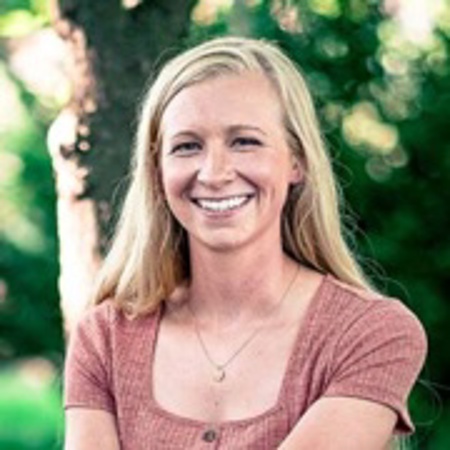Lexi Nicole Heger
Graduate Student, Molecular Plant Sciences Program
Graduate Student, Dean’s Office
Email: lheger@msu.edu
Bio
###Lab [Timothy Miles](https://directory.natsci.msu.edu/Directory/Profiles/Person/103065) ###Research interests Oomycete pathogens of grape and hop, with a focus on downy mildew. **What got you interested in plants and plant science?** It all started with me experimenting in my own (tiny) home garden in early high school, then running the show in the plant chapters of my AP biology class! I started with sunflowers and strawberries, and then took over my parents' back yard with so much more. I recognized I could make a career out of something I really cared about and saw promise in, and from there I was sold. I studied horticulture for my undergraduate degree, and found plant pathology to be the best next step in fueling my curiosity and understanding how plants interact with the world around them. Plants are so multi-purposeful and that is what excites me and keeps me curious throughout my studies, as each new project opens hundreds of doors for more questions. **What is your research about?** I study oomycete pathogens of grape and hop, with a focus on downy mildew (P.viticola/P.humuli). I research and explore pathogen diagnostics, population genetics, and the utilization of molecular tools to understand fungicide efficacy in order to help improve pathogen management for growers. The creation of numerous molecular markers will allow for rapid field detection of oomycete pathogens, making fungicide programs and disease management more accurate and cost-efficient for growers. Additionally, I would like to further explore host pathogen interaction and host resistance mechanisms at different time points after infection, trying to understand which genes are most crucial to the plant's and pathogen's survival. **What is the potential societal impact of your research?** My hope is that, through better understanding fungicide resistance and with the development of molecular tools for pathogen detection, we can help Michigan small fruit growers to have greater crop success for many years to come. While the tools we create and the analyses we do are specific to small fruits, they then can be used for other pathosystems to help a wider range of growers around the world. **Where do you see yourself in 10 years?** I would like to still be in a lab---maybe pursuing a faculty position! But I also hope to be at a place (mentally and physically) where I can confidently mentor and teach students. I have great hope that I will have done work that I am proud of and have contributed not only to my field with my research, but also through my interactions with other researchers, members of the scientific community, and the growers (who help us truly see where our work is most necessary). Maybe by then I will finally have my (huge) dream garden with a few dogs... **On a Saturday afternoon, you'll likely find me:** Making ice cream, working out, wandering outside, gardening, or watching a movie. **Twitter:** [@PhytoaLEXIn_12](https://twitter.com/PhytoaLEXIn_12)
